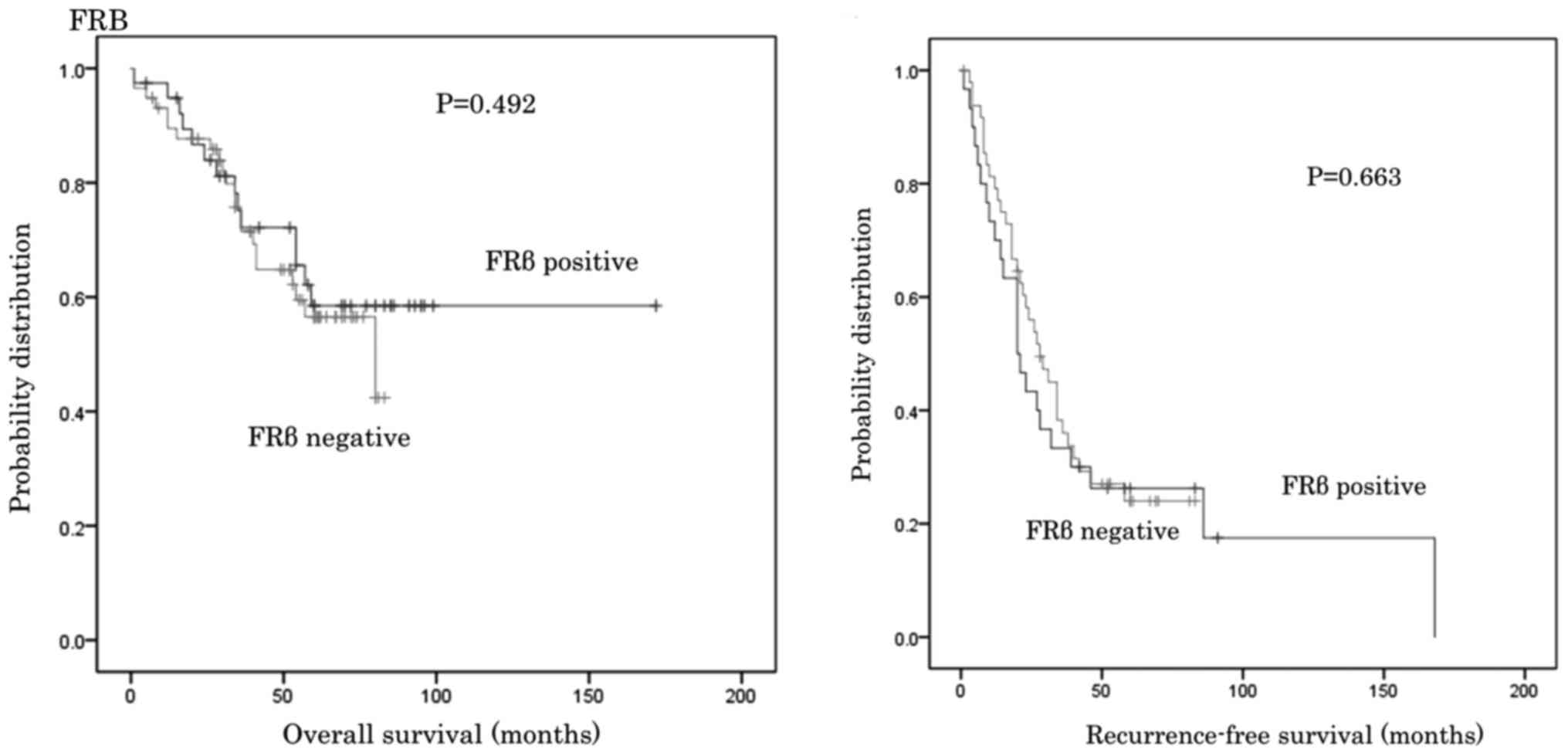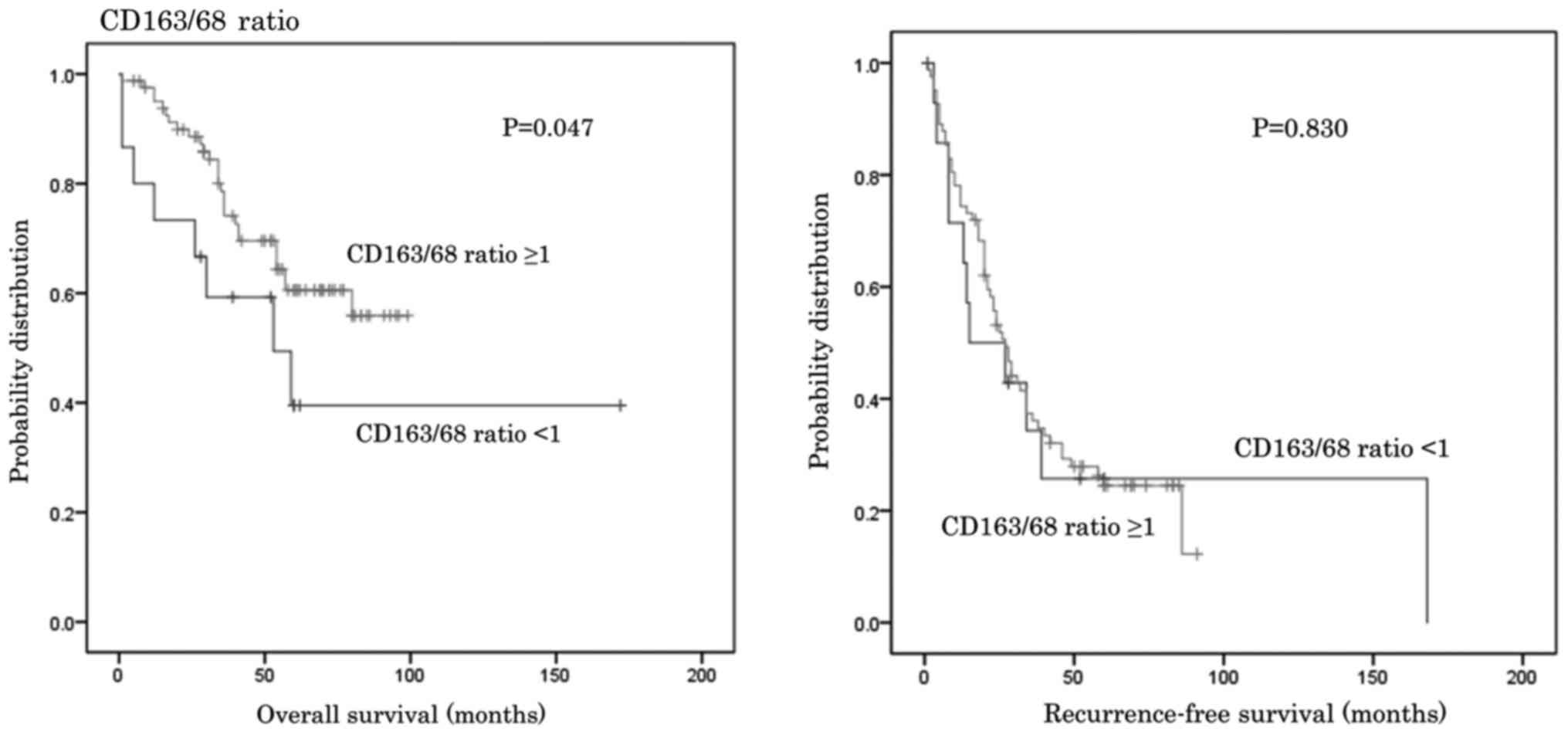|
1
|
El-Serag HB and Mason AC: Rising incidence
of hepatocellular carcinoma in the United States. N Engl J Med.
340:745–750. 1999. View Article : Google Scholar : PubMed/NCBI
|
|
2
|
Bosch FX, Ribes J and Borràs J:
Epidemiology of primary liver cancer. Semin Liver Dis. 19:271–285.
1999. View Article : Google Scholar : PubMed/NCBI
|
|
3
|
El-Serag HB: Epidemiology of viral
hepatitis and hepatocellular carcinoma. Gastroenterology.
142:1264–1273.e1. 2012. View Article : Google Scholar : PubMed/NCBI
|
|
4
|
Japan Ministry of Health, . Labor and
Welfare carried out in 2008.
|
|
5
|
Grivennikov SI, Greten FR and Karin M:
Immunity, inflammation, and cancer. Cell. 140:883–899. 2010.
View Article : Google Scholar : PubMed/NCBI
|
|
6
|
Yoshimura A: Signal transduction of
inflammatory cytokines and tumor development. Cancer Sci.
97:439–447. 2006. View Article : Google Scholar : PubMed/NCBI
|
|
7
|
Bacman D, Merkel S, Croner R, Papadopoulos
T, Brueckl W and Dimmler A: TGF-beta receptor 2 downregulation in
tumour-associated stroma worsens prognosis and high-grade tumours
show more tumour-associated macrophages and lower TGF-beta1
expression in colon carcinoma: A retrospective study. BMC Cancer.
7:1562007. View Article : Google Scholar : PubMed/NCBI
|
|
8
|
Kong LQ, Zhu XD, Xu HX, Zhang JB, Lu L,
Wang WQ, Zhang QB, Wu WZ, Wang L, Fan J, et al: The clinical
significance of the CD163+ and CD68+ macrophages in patients with
hepatocellular carcinoma. PLoS One. 8:e597712013. View Article : Google Scholar : PubMed/NCBI
|
|
9
|
Bolat F, Kayaselcuk F, Nursal TZ,
Yagmurdur MC, Bal N and Demirhan B: Microvessel density, VEGF
expression, and tumor-associated macrophages in breast tumors:
Correlations with prognostic parameters. J Exp Clin Cancer Res.
25:365–372. 2006.PubMed/NCBI
|
|
10
|
Chen JJ, Lin YC, Yao PL, Yuan A, Chen HY,
Shun CT, Tsai MF, Chen CH and Yang PC: Tumor-associated
macrophages: The double-edged sword in cancer progression. J Clin
Oncol. 23:953–964. 2005. View Article : Google Scholar : PubMed/NCBI
|
|
11
|
Deininger MH, Meyermann R and Schluesener
HJ: Expression and release of CD14 in astrocytic brain tumors. Acta
Neuropathol. 106:271–277. 2003. View Article : Google Scholar : PubMed/NCBI
|
|
12
|
Bingle L, Brown NJ and Lewis CE: The role
of tumour-associated macrophages in tumour progression:
Implications for new anticancer therapies. J Pathol. 196:254–265.
2002. View Article : Google Scholar : PubMed/NCBI
|
|
13
|
Mantovani A, Sozzani S, Locati M, Allavena
P and Sica A: Macrophage polarization: Tumor-associated macrophages
as a paradigm for polarized M2 mononuclear phagocytes. Trends
Immunol. 23:549–555. 2002. View Article : Google Scholar : PubMed/NCBI
|
|
14
|
Elliott LA, Doherty GA, Sheahan K and Ryan
EJ: Human tumor-infiltrating myeloid cells: Phenotypic and
functional diversity. Front Immunol. 8:862017. View Article : Google Scholar : PubMed/NCBI
|
|
15
|
Pancione M, Giordano G, Remo A, Febbraro
A, Sabatino L, Manfrin E, Ceccarelli M and Colantuoni V: Immune
escape mechanisms in colorectal cancer pathogenesis and liver
metastasis. J Immunol Res. 2014:6868792014. View Article : Google Scholar : PubMed/NCBI
|
|
16
|
Pulford KA, Rigney EM, Micklem KJ, Jones
M, Stross WP, Gatter KC and Mason DY: KP1: A new monoclonal
antibody that detects a monocyte/macrophage associated antigen in
routinely processed tissue sections. J Clin Pathol. 42:414–421.
1989. View Article : Google Scholar : PubMed/NCBI
|
|
17
|
Zwadlo G, Voegeli R, Osthoff Schulze K and
Sorg C: A monoclonal antibody to a novel differentiation antigen on
human macrophages associated with the down-regulatory phase of the
inflammatory process. Exp Cell Biol. 55:295–304. 1987.PubMed/NCBI
|
|
18
|
Puig-Kröger A, Sierra-Filardi E,
Domínguez-Soto A, Samaniego R, Corcuera MT, Gómez-Aguado F, Ratnam
M, Sánchez-Mateos P and Corbí AL: Folate receptor beta is expressed
by tumor-associated macrophages and constitutes a marker for M2
anti-inflammatory/regulatory macrophages. Cancer Res. 69:9395–9403.
2009. View Article : Google Scholar : PubMed/NCBI
|
|
19
|
Leamon CP and Jackman AL: Exploitation of
the folate receptor in the management of cancer and inflammatory
disease. Vitam Horm. 79:203–233. 2008. View Article : Google Scholar : PubMed/NCBI
|
|
20
|
Ross JF, Wang H, Behm FG, Mathew P, Wu M,
Booth R and Ratnam M: Folate receptor type beta is a neutrophilic
lineage marker and is differentially expressed in myeloid leukemia.
Cancer. 85:348–357. 1999. View Article : Google Scholar : PubMed/NCBI
|
|
21
|
Pan XQ, Zheng X, Shi G, Wang H, Ratnam M
and Lee RJ: Strategy for the treatment of acute myelogenous
leukemia based on folate receptor beta-targeted liposomal
doxorubicin combined with receptor induction using all-trans
retinoic acid. Blood. 100:594–602. 2002. View Article : Google Scholar : PubMed/NCBI
|
|
22
|
Hao H, Qi H and Ratnam M: Modulation of
the folate receptor type beta gene by coordinate actions of
retinoic acid receptors at activator Sp1/ets and repressor AP-1
sites. Blood. 101:4551–4560. 2003. View Article : Google Scholar : PubMed/NCBI
|
|
23
|
Nagayoshi R, Nagai T, Matsushita K, Sato
K, Sunahara N, Matsuda T, Nakamura T, Komiya S, Onda M and
Matsuyama T: Effectiveness of anti-folate receptor beta antibody
conjugated with truncated pseudomonas exotoxin in the targeting of
rheumatoid arthritis synovial macrophages. Arthritis Rheum.
52:2666–2675. 2005. View Article : Google Scholar : PubMed/NCBI
|
|
24
|
Liver Cancer Study Group of Japan: The
General Rules for the Clinical and Pathological Study of Primary
Liver Cancer. The 6th edition. Kanehara syuppan; 2015
|
|
25
|
Atanasov G, Hau HM, Dietel C, Benzing C,
Krenzien F, Brandl A, Wiltberger G, Matia I, Prager I, Schierle K,
et al: Prognostic significance of macrophage invasion in hilar
cholangiocarcinoma. BMC Cancer. 15:7902015. View Article : Google Scholar : PubMed/NCBI
|
|
26
|
Koelzer VH, Canonica K, Dawson H, Sokol L,
Karamitopoulou-Diamantis E, Lugli A and Zlobec I: Phenotyping of
tumor-associated macrophages in colorectal cancer: Impact on single
cell invasion (tumor budding) and clinicopathological outcome.
Oncoimmunology. 5:e11066772015. View Article : Google Scholar : PubMed/NCBI
|
|
27
|
Yamaguchi T, Fushida S, Yamamoto Y,
Tsukada T, Kinoshita J, Oyama K, Miyashita T, Tajima H, Ninomiya I,
Munesue S, et al: Tumor-associated macrophages of the M2 phenotype
contribute to progression in gastric cancer with peritoneal
dissemination. Gastric Cancer. 19:1052–1065. 2016. View Article : Google Scholar : PubMed/NCBI
|
|
28
|
Balermpas P, Rödel F, Liberz R, Oppermann
J, Wagenblast J, Ghanaati S, Harter PN, Mittelbronn M, Weiss C,
Rödel C and Fokas E: Head and neck cancer relapse after
chemoradiotherapy correlates with CD163+ macrophages in primary
tumour and CD11b+ myeloid cells in recurrences. Br J Cancer.
111:1509–1518. 2014. View Article : Google Scholar : PubMed/NCBI
|
|
29
|
Ino Y, Yamazaki-Itoh R, Shimada K, Iwasaki
M, Kosuge T, Kanai Y and Hiraoka N: Immune cell infiltration as an
indicator of the immune microenvironment of pancreatic cancer. Br J
Cancer. 108:914–923. 2013. View Article : Google Scholar : PubMed/NCBI
|
|
30
|
Zhang B, Wang Z, Wu L, Zhang M, Li W, Ding
J, Zhu J, Wei H and Zhao K: Circulating and tumor-infiltrating
myeloid-derived suppressor cells in patients with colorectal
carcinoma. PLoS One. 8:e571142013. View Article : Google Scholar : PubMed/NCBI
|
|
31
|
Mahmoud SM, Lee AH, Paish EC, Macmillan
RD, Ellis IO and Green AR: Tumour-infiltrating macrophages and
clinical outcome in breast cancer. J Clin Pathol. 65:159–163. 2012.
View Article : Google Scholar : PubMed/NCBI
|
|
32
|
Komohara Y, Ohnishi K, Kuratsu J and
Takeya M: Possible involvement of the M2 anti-inflammatory
macrophage phenotype in growth of human gliomas. J Pathol.
216:15–24. 2008. View Article : Google Scholar : PubMed/NCBI
|
|
33
|
Nagai T, Tanaka M, Tsuneyoshi Y, Xu B,
Michie SA, Hasui K, Hirano H, Arita K and Matsuyama T: Targeting
tumor-associated macrophages in an experimental glioma model with a
recombinant immunotoxin to folate receptor beta. Cancer Immunol
Immunother. 58:1577–1586. 2009. View Article : Google Scholar : PubMed/NCBI
|
|
34
|
de Boer E, Crane LM, van Oosten M, van der
Vegt B, van der Sluis T, Kooijman P, Low PS, van der Zee AG, Arts
HJ, van Dam GM and Bart J: Folate receptor-beta has limited value
for fluorescent imaging in ovarian, breast and colorectal cancer.
PLoS One. 10:e01350122015. View Article : Google Scholar : PubMed/NCBI
|



















